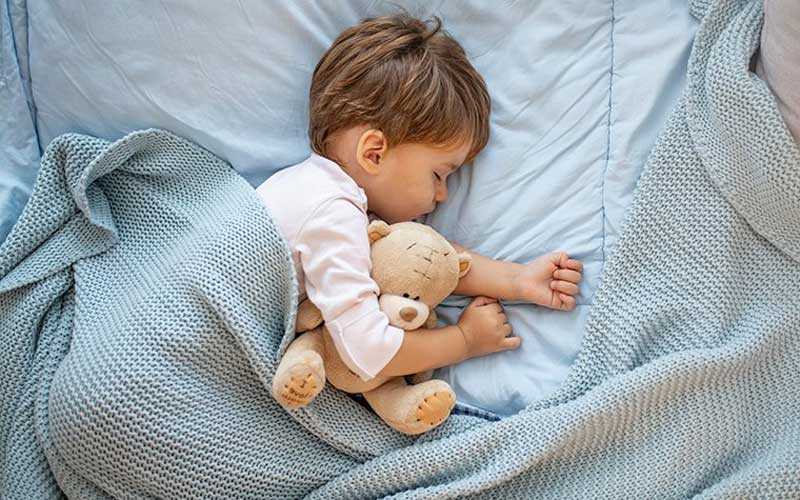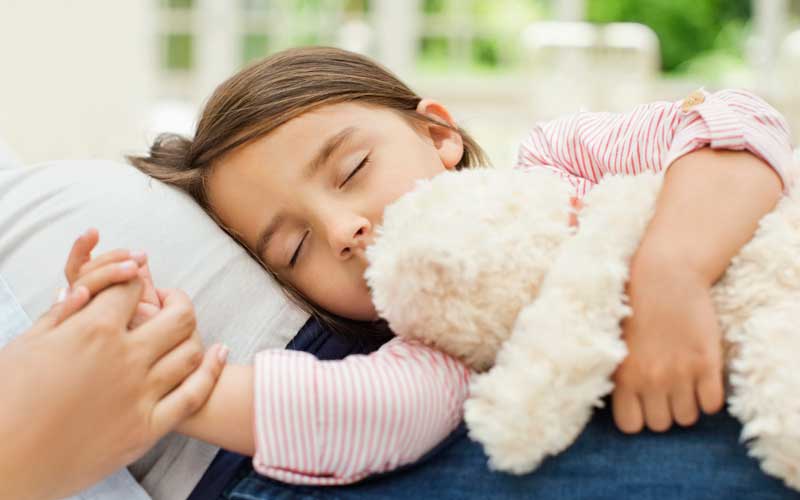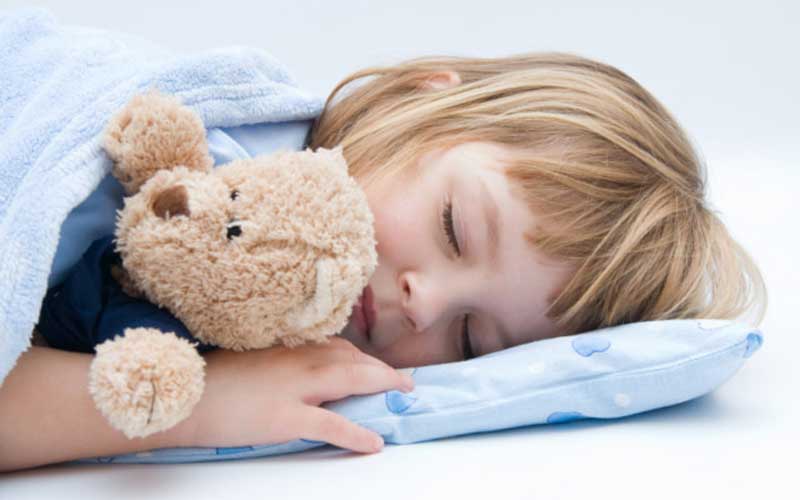Sleep is of crucial importance to young children. Early in life, they experience tremendous development that affects the brain, body, emotions, and behaviour and sets the stage for their continued growth through childhood and adolescence. In light of this, it is normal for parents to want to make sure that their child gets enough rest.
How much sleep do children need?
As kids get older, the amount of sleep they get changes significantly. Their sleep becomes similar to that of adults as they grow in age and start school. Generally, the sleep requirements for young kids decline, which is reflected primarily in the decreased amount of time spent napping during the day.
Kids sleep for fewer hours than babies, but rest is still critical to their overall health and development. Lack of sufficient sleep at a young age has been linked to problems with weight, mental health, behaviour, and cognitive performance.
For example, babies spend the majority of their day sleeping and the amount of time they rest depends on their age. One child may need 16 hours of sleep, whereas another one might only require 10. That is usually determined by their age, which we’ll take a closer look at next.
Newborns (0 – 3 months)

Newborns should sleep between 14 and 17 hours a day, according to the NSF. However, the sleep they get is usually broken up into short periods because of the need for feeding (breastfeeding or formula).
It is rare for newborns to sleep through the night without waking up, even if they get the majority of their rest at night. Therefore, in order to accommodate feeding, nighttime sleep segments, and daytime naps, parents often work to develop a rough structure or schedule for a newborn. Newborns can have fluctuations in their sleep patterns, but they don’t necessarily mean there is a sleeping problem at hand.
Infants (4 – 11 months)

The recommended amount of sleep for infants is between 12 and 15 hours per day. Infants wake every couple of hours to eat. Breastfed babies usually eat every 2–3 hours, whereas bottle-fed ones tend to feed less often, which is about every 3–4 hours.
In the beginning, a baby’s life and regime can be challenging for parents, who have to regularly get up many times at night to tend to the baby’s needs. Every baby has a different sleep pattern. Some start to sleep throughout the night for between 5–6 hours at a time by four months of age, but some don’t. If you want your little one to be in a blissful slumber but don’t know where to start, take a look at our guide on ‘Best Cotbed Mattresses’.
Toddlers (1 – 2 years)

Overall, it is recommended that toddlers get between 11 and 14 hours of quiet time a day. Their napping goes down compared to infants, and they get 1-2 hours of napping per day. Two naps per day are normal at the beginning of this period, but older toddlers typically only take an afternoon nap.
That’s when your child starts to get healthy sleep habits, and their bedtime routine is more structured. So finding the ‘Best Cot Mattress’ for your kiddo is crucial, and you can take a look at our suggestions.
Preschool (3 – 5 years)

Preschool-aged children between 3-5 years old should get around 10 to 13 total hours of rest per day. During this time, naps usually get shorter, or your child may stop napping regularly. That’s when their attention span expands, and they are interested in listening to a book before bed.
Now that your little one has a regular sleep pattern and maybe even a sleep diary, it’s time you introduce them to quality pillows so that they can get their 10 hours of deep sleep at night. Here are our recommendations for the ‘Best pillows for kids on the market.’
School-Age (6 – 13 years)

When it’s time for school, children should sleep for a total of 9-11 hours every day. For some, this period might be extended to 12 hours. The individual needs of any given child in this group can vary a lot, as school-age includes a wider set of ages.
For example, younger kids need more sleep than older kids who are in middle or high school. Understand that when kids start to go through puberty and enter adolescence, their sleep patterns can change tremendously, and it can be a challenge to make them stop using their mobile phones and turn off their screens to get a good night’s rest on a regular basis.
Is it normal for kids to take naps?

It is normal for toddlers and preschool-aged children to take naps since the benefits of napping may continue during these years. Naps become shorter and less frequent during early childhood, which is entirely normal. This can happen naturally or as a result of the child’s school schedule.
It is important to remember that nap preferences can be different for every child, despite the fact that many children stop napping by age five. Some children sleep easily, but others fall asleep only occasionally or not at all in preschools with scheduled nap times.
Older children can also benefit from taking a nap, as they may still be inclined to do so. For example, a study in China found that children who took frequent naps after lunch had better behaviour, academic achievement and higher overall happiness.
According to the existing research, what is best for one child can change over time and may not be what is best for another one of the same age. Therefore, parents, teachers, and childcare workers should be flexible and understanding to encourage optimal sleep for kids.
What to do if your child isn’t sleeping enough?

25% of youngsters have sleeping problems or excessive daytime sleepiness, and these issues can affect older kids and teens as well. If there are signs of severe or persistent problems, such as insomnia, parents should talk with their child’s doctor and raise the issue if there are signs.
Creating a peaceful, quiet, and comfortable bedroom environment is the first step in helping your child sleep. It’s easy for children of any age to get consistent sleep if they have an appropriate mattress and don’t use electronic devices (at least two hours before bed).
Establishing a stable sleep schedule and pre-bed routine can help cut down on the night to night variability in sleep. Also, having good sleep hygiene can do wonders. It is easier for the little ones to fall asleep and stay that way when they have an opportunity to use up their energy during the day.
Bottom line
If your baby is gaining weight gradually but still sleeping a lot, try to relax. Accept the fact that you could be dealing with a sleepy little angel. Try to enjoy it while it lasts and definitely catches up on your sleep, too.
Establishing a consistent bedtime is essential when your child isn’t an infant anymore. The routine needs to start at the same time each night. If your child is having daytime sleepiness or behaviour difficulties in school that you think may be linked to lack of sleep, you need to see your doctor/paediatrician.
We hope we were able to answer the how and why, and now it’s our turn to hear from you if any questions regarding the subject were left unanswered. If you want to share some information, we would gladly hear about it in the comments below.
